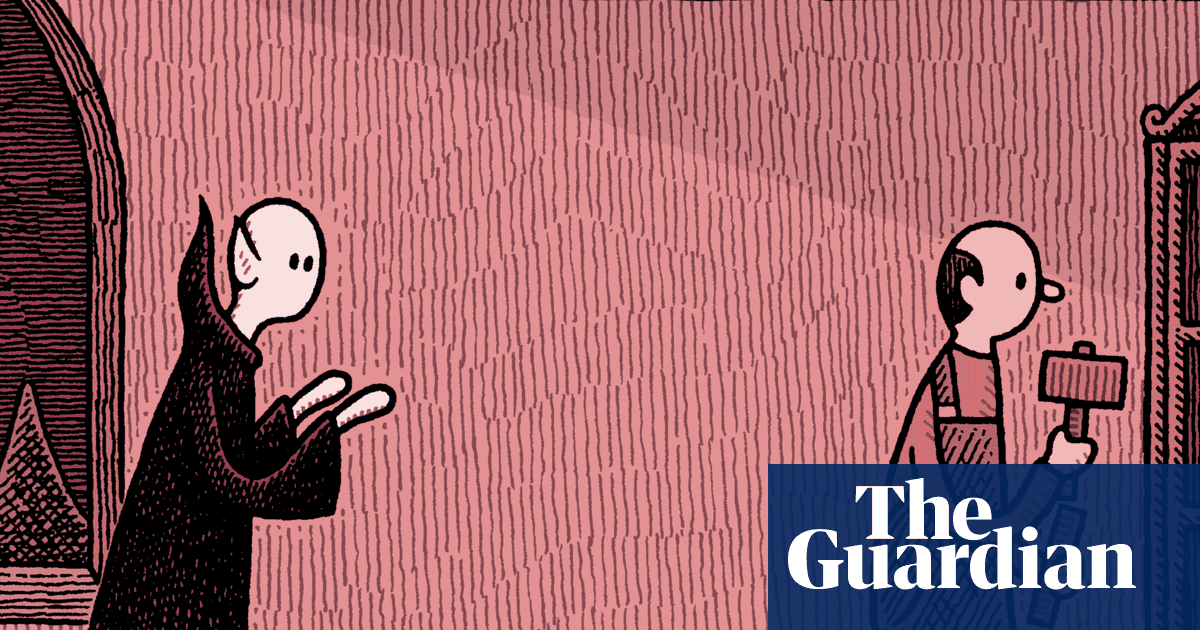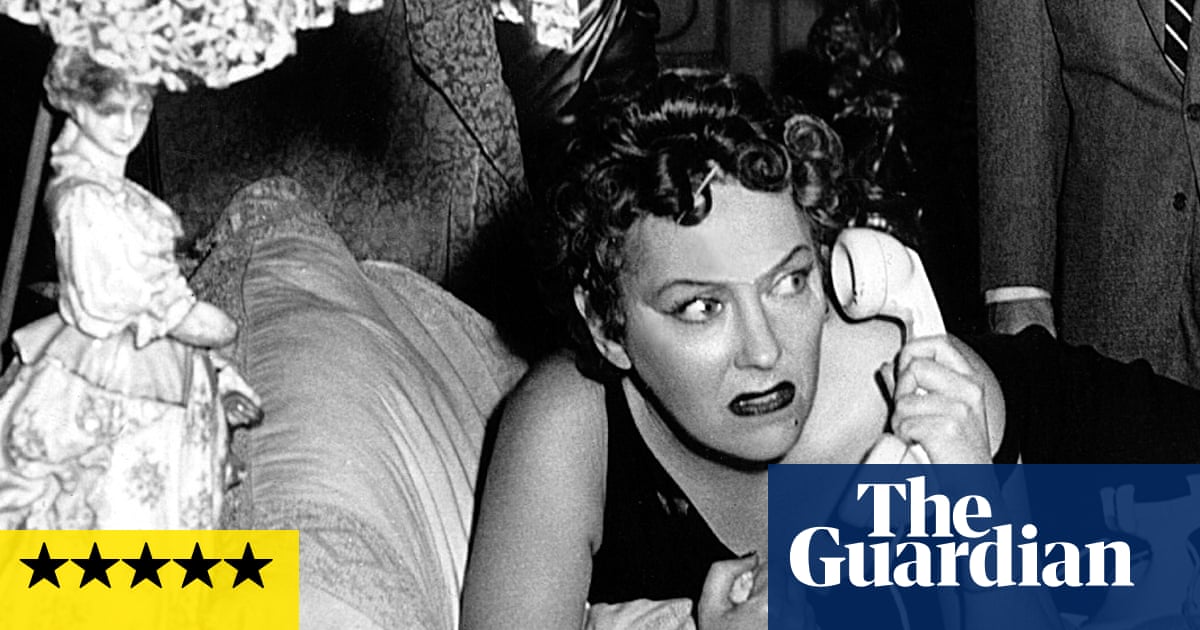We all know that early birds get the worm. But who wants a worm? Not me. For most of my life I have identified as a night owl, clambering out of bed as late as possible and not so much seizing but reluctantly easing into the day.
US work culture is not really optimal for night owls. Rather, it favours CEOs who get up at 4am and run a marathon while the rest of us hit the snooze button. Still, I always consoled myself with the idea that night owls are actually more intelligent and creative than their early bird counterparts. Franz Kafka and Thomas Wolfe wrote at bedtime; Bob Dylan recorded at night. Even scientific studies indicated it was true.
However, something weird has happened. Due to a combination of existential dread, cutting out alcohol and having a small child who wakes me up at an ungodly hour, I’ve started to go to bed earlier and earlier. These days, a 9pm bedtime is perfection. The idea of routinely staying up until the wee hours, as I used to, is now horrifying.
This shift has me questioning everything. Is it actually possible for your body clock to change? Am I really turning into an early bird or have I just been forced into a child-dictated schedule? And if I am an early bird, does that make me a lesser being? I went on a mission to settle the owl-versus-lark debate for once and for all.
What makes someone an early or late riser?
My first discovery: you can’t help who you are; your optimal bedtime is hardwired into you. “We all have an internal biological clock, or a circadian rhythm, that controls numerous physiological outputs, including alertness levels, sleep, hormone levels and blood pressure,” says Kristen Knutson, an associate professor at Northwestern University who specializes in sleep research. Your “chronotype”, meanwhile, is your circadian preference: the scientific way of saying whether you’re a morning lark or night owl. Someone with an early chronotype will naturally find it easier to go to sleep early than someone with a later chronotype.
While it is difficult to fundamentally change your chronotype, it does naturally shift as you age. Anyone with a small child will understand why I don’t bother with an alarm clock any more – my four-year-old rudely wakes me up at 5.30am instead. But biological clocks delay as puberty hits, says Knutson: teenagers “have a later chronotype. Then, as we get older, our chronotype tends to drift earlier and earlier. By the time we are in our 80s, we are an early type.”
We all go through this same cycle, but from different starting points. “In young adults, morning and evening types can differ by as much as approximately four hours in how their biological clocks affect their behavior,” says Hans Van Dongen, director of the Sleep and Performance Research Center at Washington State University Health Sciences Spokane. It’s not entirely certain why these differences exist but, along with possible evolutionary reasons, there’s probably a genetic component. “Children born to evening-type parents are more likely to be evening types, and likewise for morning types,” says Van Dongen.
Is there any evidence night owls are smarter than early birds?
Back to that all-important question, though: does being a night owl make you more creative and intelligent?
One 2007 study found “that evening-disposition is correlated with the ability to apply divergent thinking strategies to visual content” – a science-y way of saying “more creative”. In a 2009 study called “Why night owls are more intelligent”, psychologist Satoshi Kanazawa checked the bedtimes of 20,745 adolescents against the results of an intelligence test. He found people with higher intelligence were more likely to be night owls, and posited that it might be because it’s “evolutionarily novel” to stay up late.
More recently, researchers at Imperial College London studied UK data on more than 26,000 people who had completed various intelligence tests. The 2024 paper found that those who stay up late had “superior cognitive function” to morning larks.
However, all the experts I spoke to were cautious about making definitive links between chronotype and traits like creativity, intelligence or sociability. While they make for good headlines, all of these studies have important limitations.
That 2009 study, for example? Van Dongen notes the “analysis is based on how late individuals choose to go to bed … [and] cannot rule out the possibility that adolescents with higher IQ choose to study longer into the night and require more sleeping in for recovery on the weekend, or are involved in more or different after-school activities.”
(I emailed Kanazawa, the study’s lead researcher and an academic at the London School of Economics, to get his take on this criticism and got a reply saying: “Yeah, like I’d speak to someone from the Guardian.” It turns out that Kanazawa, who once claimed that a study showed black women to be less attractive than women of other races, is somewhat controversial and definitely not a Guardian fan.)
So my beliefs about night owls were built on shaky ground. But the stereotypes of creative geniuses burning the midnight oil and early bird CEOs could still be relevant. “The timing of the biological clock determines more than just when people like to go to bed and get up and when they feel most alert during the day,” says Van Dongen. “It also determines in part the kinds of activities they may end up participating in and the experiences they get exposed to.” If you naturally get up early, it may be easier for you to thrive in a corporate work environment, for example.
The dark side of being a night owl
One thing sleep experts all seem to agree on is that trying to force a routine that is at odds with your biological clock is unhealthy. In fact, it could send you to an early grave.
In 2018, Knutson, of Northwestern, co-authored a study that found night owls have a 10% higher risk of early death and more health problems compared with early risers. The study couldn’t determine the underlying reasons, but Knutson notes the issue may have something to do with “circadian disruption caused by desynchrony between their internal clock and the external world”. In other words, she says, “it is difficult for a night owl to live in a morning lark’s world”.
after newsletter promotion
Being a night owl may come with other risks. A 2024 study from Stanford Medicine researchers found that being up late is not good for your mental health, regardless of chronotype. The reasons are unclear, but researchers suspect it’s because unhealthy behaviours such as drinking alcohol or eating junk food are more likely late at night.
Similarly, University of Groningen researcher Ana Wenzler worked on a recent study that found staying up late is linked to cognitive decline. Wenzler notes that at least 25% of the effect was because of lifestyle rather than anything intrinsic; again, you’re more likely to make poor choices late at night.
Can you hack your chronotype?
While you can’t change your chronotype, you can try to work in harmony with it. But to do that, you first have to understand which type you are, and it’s not always obvious. Looking back, I thought I was a night owl for many years just because of my habits. I was young and went out a lot. Yet once I stopped drinking, my body clock seemed to shift.
But it’s not like I’m waking up with the birds like Snow White, ready for the day. In fact, I’ve started to think I’m neither a morning person nor an evening person, but something in the middle. Which, apparently, is possible. According to sleep specialist Dr Michael Breus, someone whose chronotype sits firmly in the middle is a “bear”. And us bears actually dominate: by some estimates, half the population is in that category.
So how do you figure out your natural biological clock? Wenzler says the way to determine a person’s chronotype is to measure the melatonin levels in their saliva “throughout the day to see when the melatonin goes up”. Melatonin is a hormone your body secretes to signal to you that it’s night; morning people release it earlier.
Obviously, saliva tests won’t be practical for most people. In the absence of a home science lab, says Wenzler, try sleeping without an alarm for a week. Stay away from depressants and stimulants like alcohol and coffee and avoid artificially extending your natural bedtime by doomscrolling or bingeing TV, and your body will find a natural rhythm. You’ll wake up whenever your body deems best.
I would have tried this experiment myself, but you can’t really get rid of your alarm clock when that alarm is a small child.
Finally, if you are certain you’re a night owl, but have to get up early for work (or, in my case, entertain a hyperactive four-year-old in the wee hours), can you tweak your biological clock? Sort of!
“It’s possible to shift, but usually only modestly,” says Matthew P Walker, director at the Center for Human Sleep Science at the University of California, Berkeley. Walker mentions a 2019 study that “advanced night owls by about two hours in three weeks using structured routines: morning light, fixed mealtimes, earlier exercise and caffeine cutoff. People reported better mood and performance in the mornings, though most drift back if the changes aren’t maintained.
“One could not imagine anyone sticking to this regimen in perpetuity,” he adds, and these findings indicate that people should operate in tune with their chronotype, not against it. “Yes – the early bird may catch the worm. But the second mouse gets the cheese!”
Now try telling that to your boss.

.png) 1 month ago
41
1 month ago
41

















































